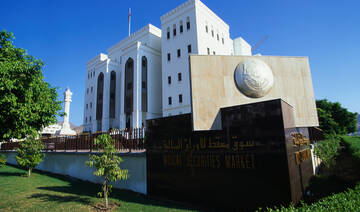RIYADH: Oil prices fell in early Asian trade on Thursday, after posting the largest fall in a month in the previous session, as US interest rate hike expectations offset the impact of drawdowns in US crude stockpiles.
Brent futures for November delivery were down 71 cents, or 0.76 percent, to $92.82 a barrel by 9:08 a.m. Saudi time, while US West Texas Intermediate crude fell 70 cents, or 0.78 percent, to $88.96, the lowest since Sept. 14.
The US Federal Reserve maintained interest rates after its Federal Open Market Committee meeting but stiffened its hawkish stance with a rate increase projected by year-end which could dampen economic growth and overall fuel demand.
“It was still seen as a hawkish pause, which put some pressure on risk assets” such as oil, said ING analysts in a client note.
Fed policymakers still see the bank’s benchmark overnight rate range peaking this year at 5.50 percent to 5.75 percent, a quarter of a percentage point above the current range.
The stance also led to the US dollar surging to its highest since early March, placing downside pressure on oil prices. A stronger dollar typically makes commodities such as oil more expensive for buyers using other currencies.
Energy markets reacted little to data from the US Energy Information Administration on Wednesday showing crude inventories fell in line with expectations last week, with some analysts saying the decline was smaller than they expected.
“EIA data showed US stockpiles fell 2.14 million barrels last week, well short of the 5.25 million barrel drop reported by the American Petroleum Institute. The disappointing inventory drawdown gave impetus for traders to lock in profits following the 10 percent gain since the start of the month,” ANZ analysts said in a note.
The stock draw was mainly driven by strong oil exports, while gasoline and diesel inventories were drawn down as refiners began annual autumn maintenance, the EIA said in a weekly report.
However, price falls were limited by continuous concern about tight supply globally entering the fourth quarter, with crude stocks at Cushing — the WTI delivery hub — at their lowest since July 2022 and production cuts continuing by the Organization of the Petroleum Exporting Countries and allies, together called OPEC+.
Some analysts still expect prices to remain supported in the near term.
“A few more drawdowns could revive talks of tanks reaching their operational minimum ... With the production cuts by Saudi Arabia and the broader OPEC+ alliance expected to remain for the rest of the year, inventories will likely touch record lows,” said ANZ analysts.
“Our balance shows a deficit of more than 2 million barrels per day through the fourth quarter of this year,” said ING analyst Warren Patterson.
“This tightness, along with strong refinery margins (largely a result of tightness in middle distillates) suggests that oil prices are likely to see further strength in the short term,” he said.















